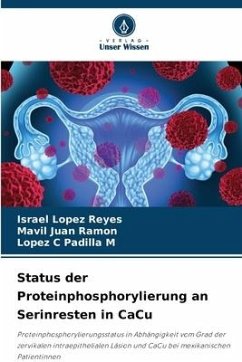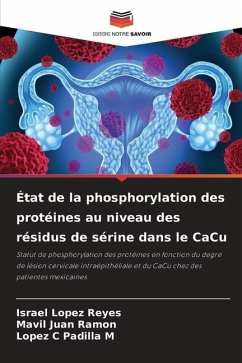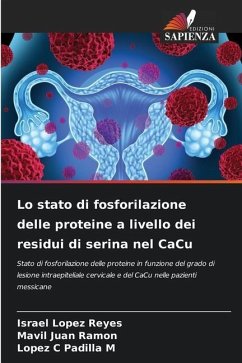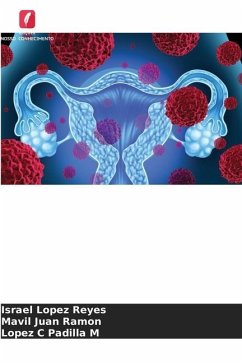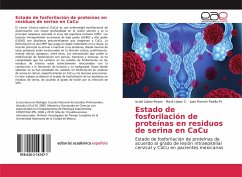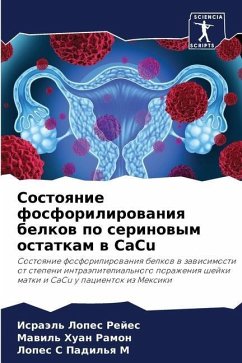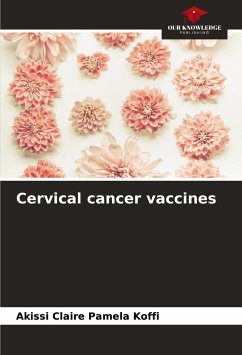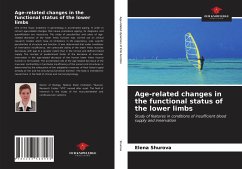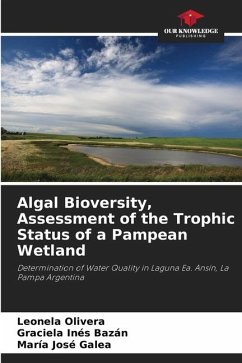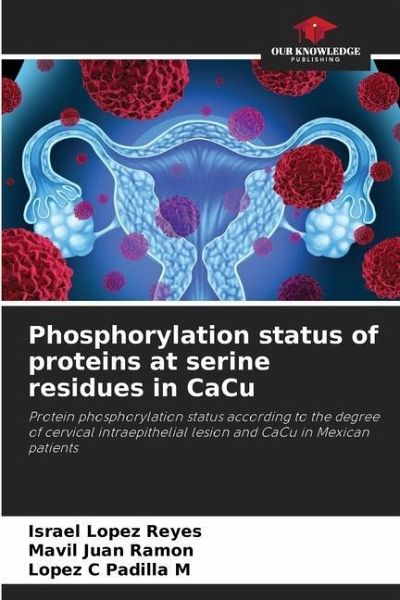
Phosphorylation status of proteins at serine residues in CaCu
Protein phosphorylation status according to the degree of cervical intraepithelial lesion and CaCu in Mexican patients
Versandkostenfrei!
Versandfertig in 6-10 Tagen
27,99 €
inkl. MwSt.

PAYBACK Punkte
14 °P sammeln!
Cervical-uterine cancer (CaCu) is a multifactorial disease of dissemination with greater depth in the cervix and is the main neoplasm associated with human papillomavirus (HPV). Low grade squamous intraepithelial lesions (LIEBG) and high grade squamous intraepithelial lesions (LIEAG) are precancerous dysplasias that progress to CaCu. Phosphorylation is an MPP that plays an important role in the cell, its main function is to activate and inactivate proteins, where many of these proteins are involved in cell division, proliferation, cell death, apoptosis, among others. The amino acids that under...
Cervical-uterine cancer (CaCu) is a multifactorial disease of dissemination with greater depth in the cervix and is the main neoplasm associated with human papillomavirus (HPV). Low grade squamous intraepithelial lesions (LIEBG) and high grade squamous intraepithelial lesions (LIEAG) are precancerous dysplasias that progress to CaCu. Phosphorylation is an MPP that plays an important role in the cell, its main function is to activate and inactivate proteins, where many of these proteins are involved in cell division, proliferation, cell death, apoptosis, among others. The amino acids that undergo phosphorylation modification are serines, threonines and tyrosines. It has been shown that changes in the phosphorylation states of tyrosine residues are closely related to tumor formation and malignancy. To our knowledge, changes in phosphorylation at serine residues in cancer, specifically in CaCu and precursor lesions, have not been studied. In this work we detected the phosphorylationstatus of proteins in serine residues, according to the degree of lesion by HPV infection.



